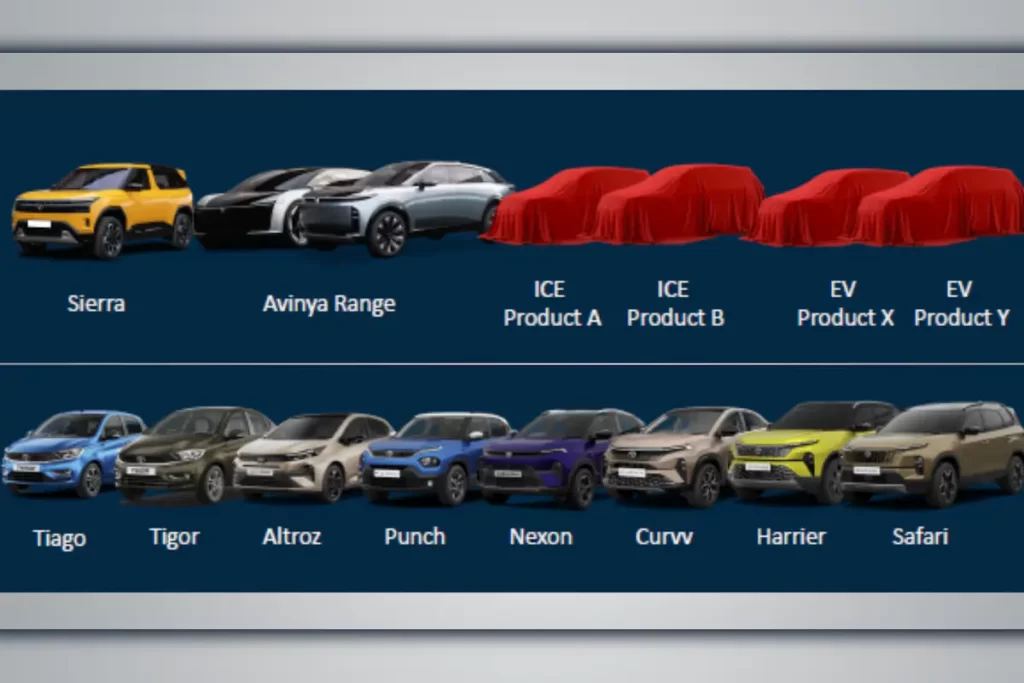New Delhi, June 10: Tata Motors has unveiled an ambitious product strategy to launch 30 new vehicle models by the financial year 2030, with seven of them being all-new nameplates. The announcement was made during the company’s annual investor meeting, where it laid out a comprehensive roadmap for growth across passenger vehicles, electric vehicles (EVs), and commercial vehicles (CVs).
Of the 30 planned models, nearly half are expected to be electric, reaffirming Tata Motors’ leadership in India’s EV segment. The move aligns with the Indian government’s push for clean mobility and the company’s broader vision of achieving net-zero emissions.
Tata Passenger Electric Mobility (TPEM), a subsidiary of Tata Motors, will play a significant role in expanding the EV portfolio. The company already leads the Indian electric passenger vehicle market with successful models like the Nexon EV, Tigor EV, and Tiago EV. Future EV launches will target various segments, offering enhanced range, features, and affordability to cater to evolving consumer needs.
The seven all-new nameplates, a mix of electric and internal combustion engine (ICE) models, will be based on new platforms and architectures. These will feature advanced connectivity, safety technologies, and eco-friendly designs. Company executives confirmed that the fresh nameplates are aimed at strengthening Tata’s presence in currently underserved market segments.
In the commercial vehicle segment, Tata Motors will introduce several new models tailored for logistics, construction, and urban mobility. A strong focus will also be placed on alternative fuel vehicles, including electric, CNG, and hydrogen-powered options, as part of the company’s clean mobility strategy.
Commenting on the development, Tata Motors MD and CEO Shailesh Chandra said, “Our future product strategy is centered around innovation, sustainability, and customer-centricity. We are preparing for a decade of transformation and growth across all segments.”
The company is also investing in EV infrastructure, battery technologies, and advanced manufacturing capabilities to support the upcoming launches. Strategic collaborations with global technology partners and efforts to localize EV components are expected to further strengthen Tata’s supply chain and reduce costs.
Industry analysts believe Tata Motors’ long-term product roadmap will help the company stay ahead in a highly competitive market. With increasing consumer demand for EVs and cleaner transport options, Tata’s commitment to sustainable mobility is being viewed as a positive move by stakeholders.
The aggressive expansion plan is expected to boost Tata Motors’ market share in both domestic and global markets, while also contributing to India’s clean energy and automotive growth goals.



